Science
Science
The vision of the Science department is ‘Do & Discover’ . Teachers and students are encouraged to conduct hands-on experiments where they will experience the scientific process first hand. Through careful observation and the use of data or evidence, students are taught to make thoughtful inferences and communicate their findings.
| Head of Department: | Mdm Connie Soon |
| Members: | Mr Dzulqarni Mrs Vanishree Siva Mrs Jamie Lee Mr Lim Wu Yi Mrs Charis Quek Ms Azlinda Ms Low Xin Jie Mdm Tracy Huang Mrs Christina Chiam Mrs Irene Lim |
Key Programmes
1) Inquiry-based Learning
Students engage in inquiry-based learning using the BSCS (Biological Sciences Curriculum Study) 5E model. The 5Es stand for Engage, Explore, Explain, Elaborate and Evaluate. Students carry out hands-on experiments and apply scientific facts, concepts and principles using basic process skills. Some of the basic process skills include observing, comparing, classifying, using apparatus and equipment, communicating, inferring, predicting, analysing, generating possibilities, evaluating and formulating a hypothesis.
2) Life Sciences Programme
With the advancement in Science and Technology and the importance of life sciences in the 21st century, students need to be curious about their environment and the applications of scientific principles and technological advancement in the real world. The Science Department has designed a comprehensive programme to involve students in life sciences from young.
These are the four modules assigned to the Primary Three to Six students as shown in the table below:
| Level | Module |
|---|---|
| Primary 3 | Life Cycle of a Mealworm |
| Primary 4 | Life Cycle of a Lady’s Finger Plant |
| Primary 5 | Hydroponics |
| Primary 6 | Orchid Hybridisation |
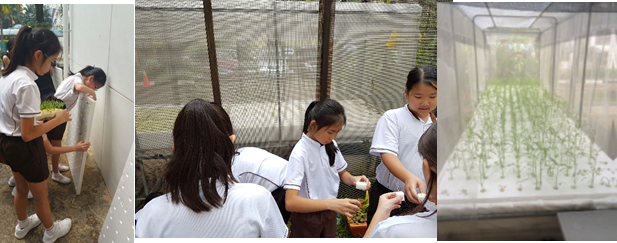 Primary 5 students growing vegetables using hydroponic
Primary 5 students growing vegetables using hydroponic
 Primary 6 students carrying out orchid hybridisation.
Primary 6 students carrying out orchid hybridisation.
3) Use of STaRs Kits, Dataloggers and other IT resources
Teachers have developed STaRs Kits (Science Teaching and Resource Kits for Students) for a few physical science topics such as heat, magnets, electricity and light. Students carry out hands-on experiments using these STaRs kits. The Primary Three students will embark on mobile learning using iPads. The students work in groups and are assigned a task where they need to search for answers using the clues uploaded in an application on the iPad.
The Primary Four to Six students will use dataloggers as part of their science curriculum.
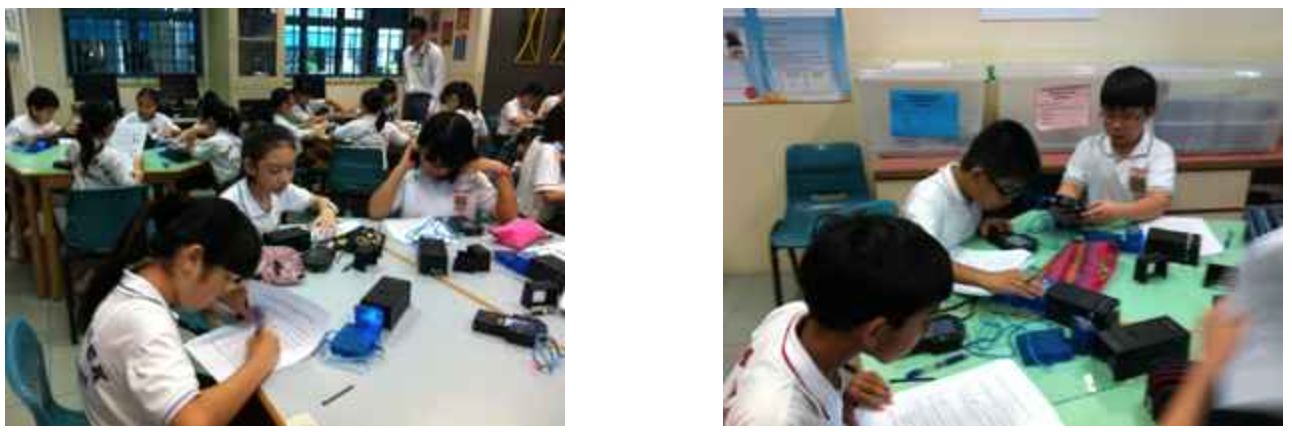 Students actively engaged in learning with the use of dataloggers.
Students actively engaged in learning with the use of dataloggers.
 Students having fun using iPads during mobile learning around the school.
Students having fun using iPads during mobile learning around the school.
4) P3-P6 Learning Tapestry: Caring for the Environment and Community
Primary 3:
Living a Sustainable Lifestyle: Adapting to Changes in the Environment
P3 students are tasked to design and build floating house in response to climate change and rising sea levels.
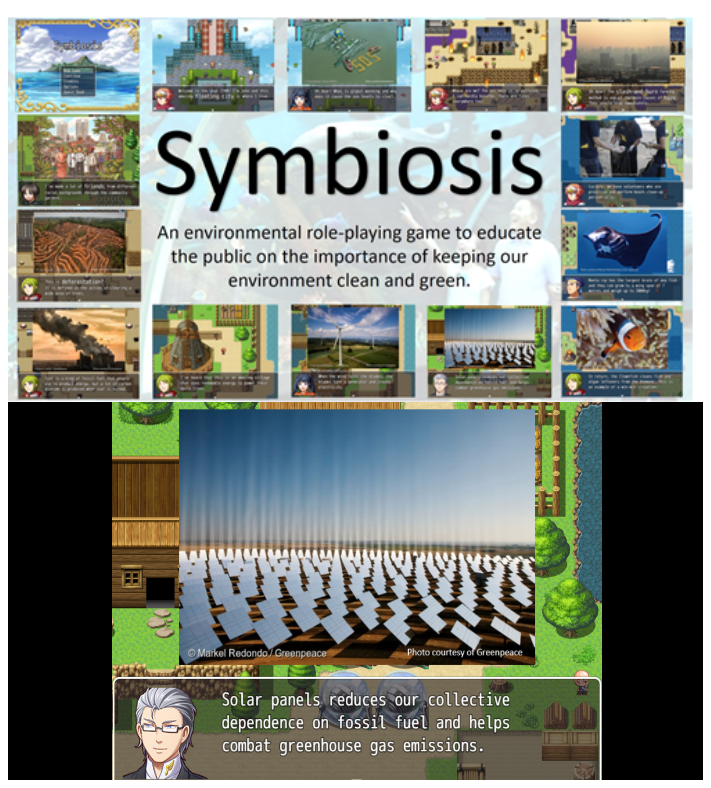 Students play an environmental role-playing game, Symbiosis, created by our students and teachers, to learn various environmental issues and the importance of conserving the environment.
Students play an environmental role-playing game, Symbiosis, created by our students and teachers, to learn various environmental issues and the importance of conserving the environment.
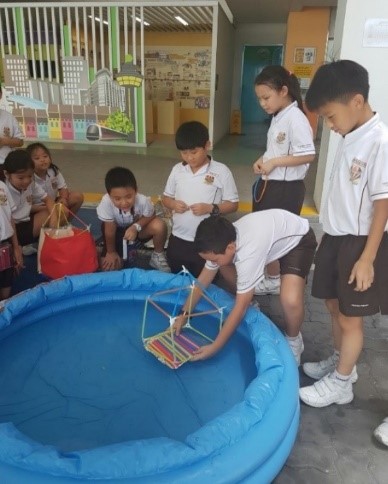 Students use recyclables to build a house and test its ability to float.
Students use recyclables to build a house and test its ability to float.
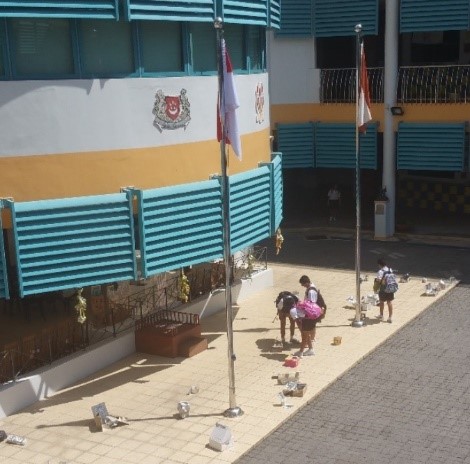 Primary 4:
Primary 4:
Living a Sustainable Lifestyle: Environmental Stewardship
P4 students are tasked to tap on renewable source of energy to design and create solar cookers. Micro:bits are used to determine the temperature reached in the solar cooker. Students then carry out investigations to find out if their solar cookers can cook an egg under the sun.
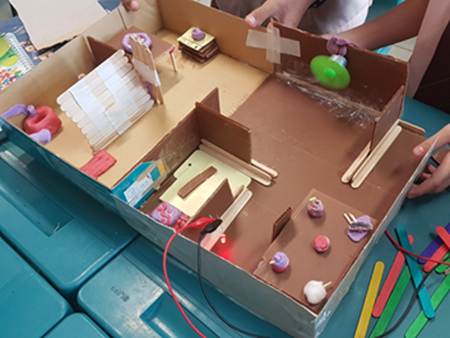 Primary 5:
Primary 5:
Creating a Technology-enabled Future
P5 Students are tasked to design and build a smart device / space
to enhance the lives of elderly.
For example, LED lights up automatically when surrounding is dimly lit
and fan turns on when surrounding is warm.
Primary 6:
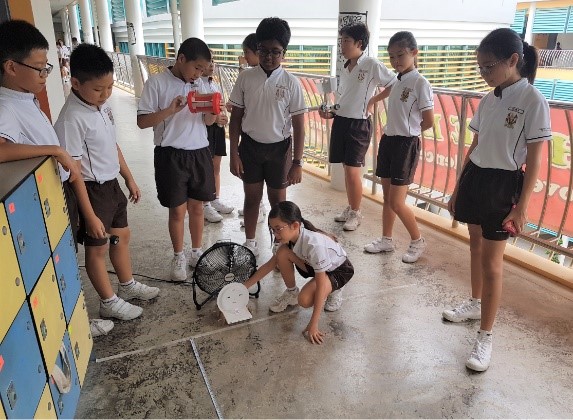 Living an Environmentally-friendly Lifestyle
Living an Environmentally-friendly Lifestyle
Our students are tasked to design and build an automobile prototype that rely on renewable energy. They work in teams and conduct investigations.
Based on their findings, they design environmentally friendly wind-powered automobiles.
5) Other Environmental Activities
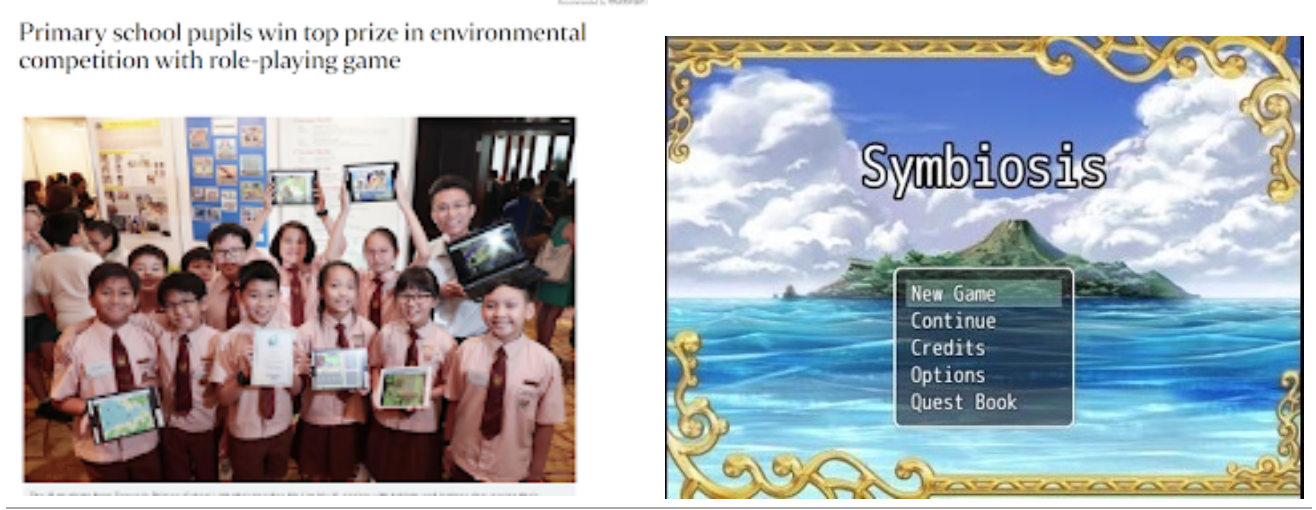
Symbiosis is an environmental role-playing game co-created by Temasek Primary teachers and students, and supported by 27 organisations. Its purpose is to create awareness on the importance of keeping our environment clean and green in an engaging way.
The Symbiosis project is a ground-up initiative led by the teachers and students. To promote the joy of learning, the teachers decided to create the game so as to use it as an educational tool to complement the existing environmental education.
In the Symbiosis role-playing game, the students will interact with other characters in the game to acquire information related to environmental topics that will help them answer questions in a Quest Book. It is used as a research tool for the Primary 3 students for their inter-disciplinary project work, Learning Tapestry, during which they are engaged in exploring and solving issues related to global warming.
 Primary 3 students embark on a level-wide project to collect newspapers for recycling.
Primary 3 students embark on a level-wide project to collect newspapers for recycling.
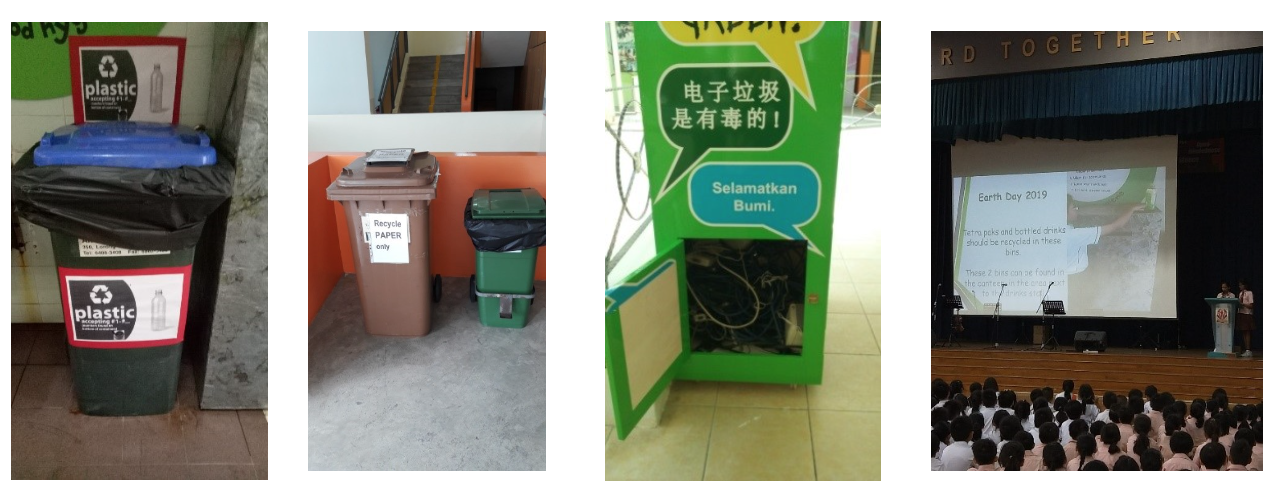 To stress on the importance of moving towards zero waste, more recycling bins are made available.
To stress on the importance of moving towards zero waste, more recycling bins are made available.
Student leaders promote the proper usage of these recycling bins to the school.
Primary 1 and 2 students: Beach Clean-Up Activity
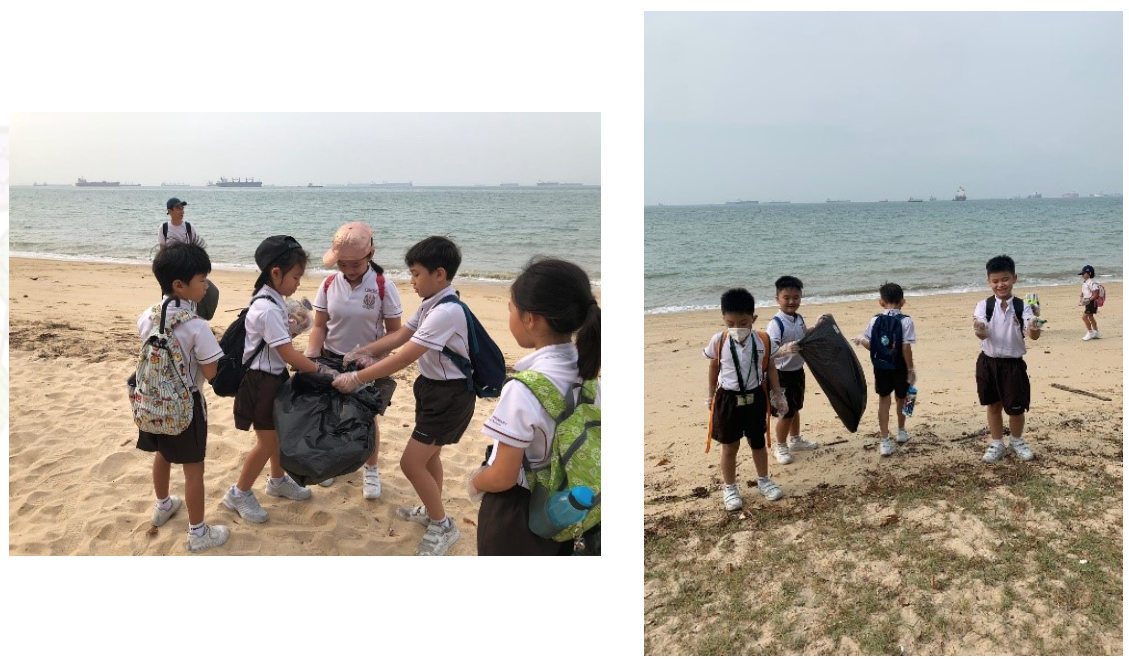 Our Primary 1 and 2 students participate in the beach clean-up activity to develop a sense of responsibility and duty to keep the environment clean and green.
Our Primary 1 and 2 students participate in the beach clean-up activity to develop a sense of responsibility and duty to keep the environment clean and green.

